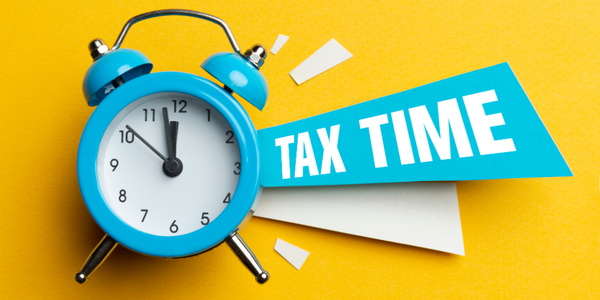Freehold vs Leasehold in Dubai: Key Differences Explained

Dubai’s real estate market is known for its luxurious offerings, iconic skyscrapers, and a regulatory system that encourages both local and international investment.
But if you're planning to buy property here, you'll need to understand one critical distinction that can affect your rights as a property owner: freehold vs leasehold ownership.
This guide cuts through the jargon and explains what these terms mean in the Dubai context, how they impact your investment, and which option might suit you best!
What is freehold ownership?
Freehold ownership allows the buyer to have complete ownership of both the property and the land on which it is located. In Dubai, this type of ownership is primarily available to foreign nationals and is limited to designated freehold zones, including Dubai Marina, Downtown Dubai, Palm Jumeirah, and Emirates Hills.
When you purchase a freehold property:
- You own the property outright.
- Your name is officially registered with the Dubai Land Department (DLD) as the legal owner.
- You can sell, lease, or bequeath the property without any restrictions.
- Ownership is indefinite, and your heirs can inherit it.
This form of ownership is popular among investors and expatriates because it offers autonomy and long-term security.
What is leasehold ownership?
Leasehold ownership allows you to occupy or use a property for a specific period, typically up to 99 years. However, you do not own the land itself; both the land and the structure remain with the freeholder, who is usually the developer or original landowner.
In Dubai, leasehold areas include parts of Dubai Silicon Oasis, Dubai Festival City, and the Green Community.
Under leasehold:
- You're essentially a tenant with long-term rights.
- The ownership is time-bound, often 30, 50, or 99 years.
- You may encounter restrictions on renovations, subletting, or making structural changes.
- Once the lease term ends, the property reverts to the freeholder unless the lease is renewed.
Leasehold can be an ideal option for buyers looking for more affordable properties or those in specific areas where freehold options are not available.
Pros and Cons of Freehold Property in Dubai
Pros of Buying Freehold Property
1. You own it, plain and simple. When you buy freehold, you're not just buying walls and windows — you’re buying the land underneath it too. That means complete control over the property, with no expiry date attached.
2. You can sell or rent it out anytime. There are no major restrictions when it comes to selling, leasing, or even passing the property on to your children. You're free to make your own decisions, like any owner would expect.
3. Long-term investment potential. Freehold properties tend to hold their value well and often appreciate over time, especially in prime areas. If you’re thinking long-term, this is a strong plus.
4. Eligibility for residency visas. In many cases, buying a freehold property worth over a certain threshold (AED 750,000 or AED 2 million, depending on visa type) can make you eligible for a UAE residency visa.
Cons of Buying Freehold Property
1. It costs more upfront. You’re paying for permanent ownership, and that comes with a higher price tag. Freehold properties are generally more expensive than leasehold options in similar locations.
2. You’re responsible for everything. Owning property also entails responsibility. Maintenance, repairs, and service charges are your obligations. Service fees in Dubai, particularly in luxury developments, can be significant.
3. Limited to designated areas. Freehold is only available in specific zones approved for foreign ownership. That might limit your options if you’re looking in older or more traditional neighborhoods.
Pros and Cons of Leasehold Property in Dubai
Pros of Buying Leasehold Property
1. Lower sale price. Leasehold properties are generally more affordable than freehold properties, making them appealing to first-time buyers or those with tighter budgets.
2. Access to established areas. Some of Dubai’s more mature communities, with parks, schools, and infrastructure already in place, are leasehold-only. If location matters more than ownership, this can be a big plus.
3. Less responsibility for maintenance. In many cases, the freeholder (often the developer) handles larger maintenance issues, especially for common areas. That can take a load off, particularly for overseas buyers.
Cons of Buying Leasehold Property
1. You don’t own the land. This is the key difference: you are effectively renting the property for the long term. Once the lease ends (in 30, 50, or 99 years), it will revert to the freeholder unless it is renewed.
2. Potential restrictions. You may need permission for activities such as major renovations or subletting. You’re not entirely free to do what you want with the property.
3. Resale can be tricky. As the remaining lease term gets shorter, it may become harder to sell. Buyers are less likely to be interested in a property with only 20 or 30 years left on the lease.
4. No visa benefits. Unlike freehold, leasehold properties don’t generally make you eligible for long-term residency visas, which could be a drawback for expats planning to stay in Dubai.
Buying Property in Dubai? Choose the Right Ownership Strategy With 10xM!
The difference between freehold and leasehold in Dubai isn’t just legal jargon; it can impact your long-term returns, visa options, and legacy planning.
At 10xM, we go beyond real estate advice. Our specialists combine deep knowledge of UAE property law, cross-border tax, and investment strategy to help you choose the ownership model that truly fits your goals, whether you’re building a portfolio, securing residency, or planning for future generations.
Book your free strategy session with 10xM today, and let’s make your Dubai investment work smarter from day one.




